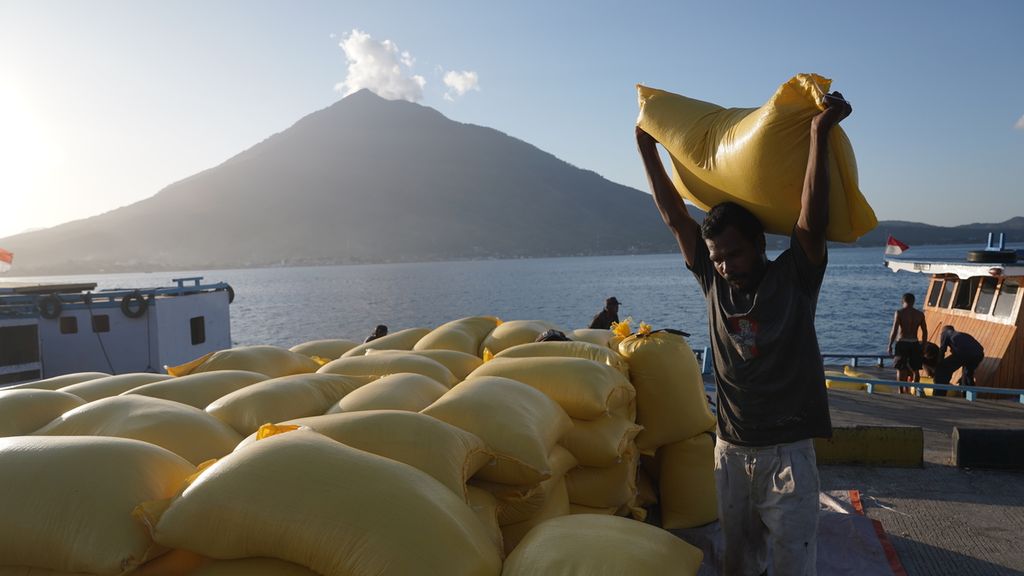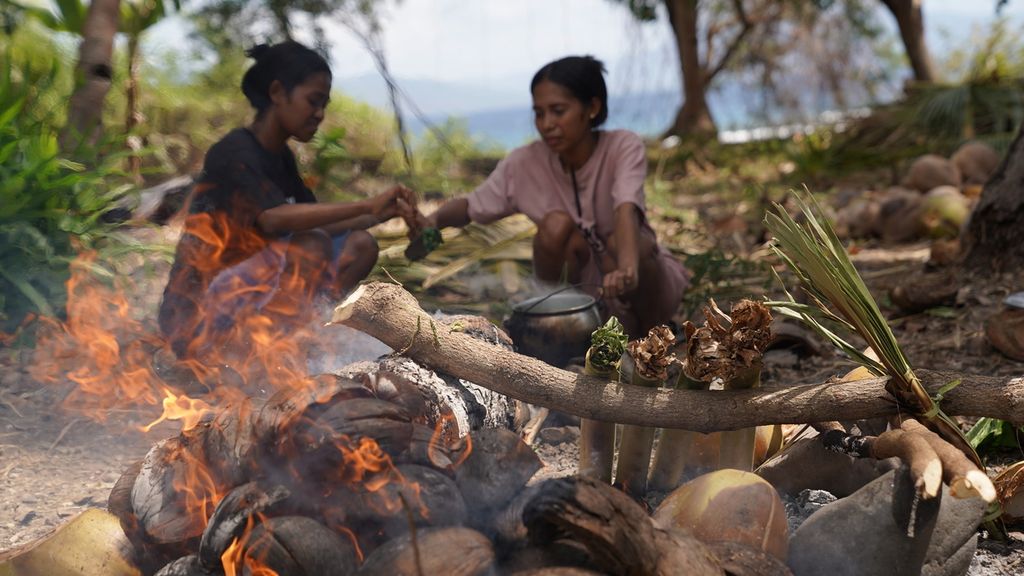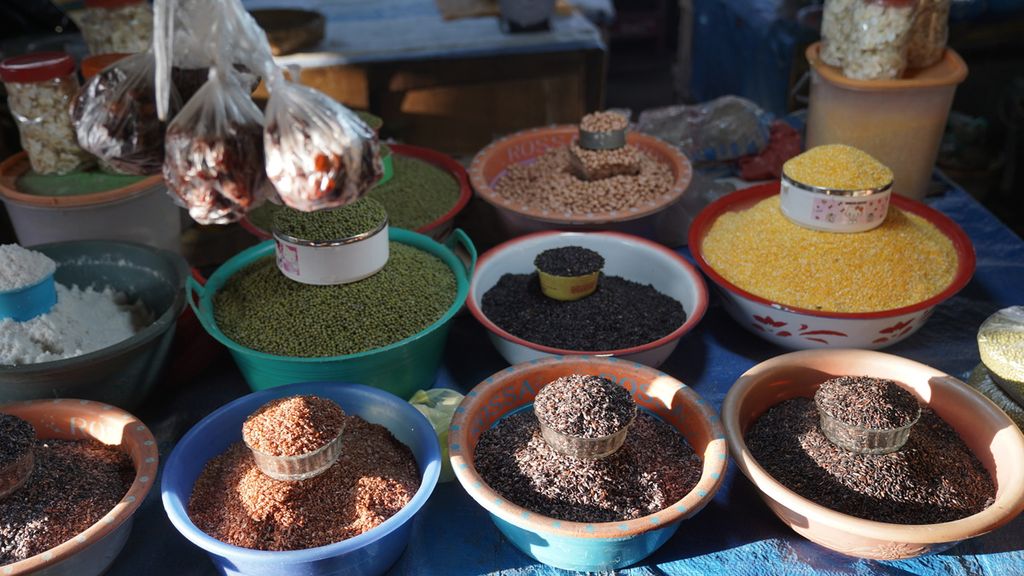This story excerpt was translated from bahasa Indonesia. To read the original story in full, visit Kompas. You may also view the original story on the Rainforest Journalism Fund website. Our website is available in English, Spanish, bahasa Indonesia, French, and Portuguese.

If food becomes one of the markers of identity, we will find it difficult to find that identity in East Nusa Tenggara. Rice-biased food politics have made NTT residents inferior to their local food.
We were actually determined to consume only local food during our trip to document food diversity in East Nusa Tenggara (NTT), as part of our coverage of food systems on small islands. However, we had to make do with rice that had to be imported from outside the island.
Stalls with Padang and Javanese dishes dominate the villages, which use white rice as their carbohydrate, in addition to meatball stalls with wheat noodles. During our two-week trip in NTT, we had difficulty finding food stalls that served local food prepared in the traditional way.
None of the hotels and inns in NTT served local menus. "Where is Manggarai's local food? I didn't find it while in Labuan Bajo. This morning, I looked for local food in the hotel and there was none," said Director of Food Consumption Diversity at the National Food Agency (Bapanas) Rinna Syawal, whom we met at a workshop in Labuan Bajo on Monday (14/8/2023).

As a nonprofit journalism organization, we depend on your support to fund more than 170 reporting projects every year on critical global and local issues. Donate any amount today to become a Pulitzer Center Champion and receive exclusive benefits!
Rinna's concern is well-founded. The workshop, held at a star hotel, discussed the transformation of the food system in NTT, which among other things emphasized the importance of local food.
However, as is typical of other hotels there, no local menu was served, not even sweet potatoes, corn, or boiled bananas. In fact, NTT is rich with a variety of tubers, corn and bananas.






